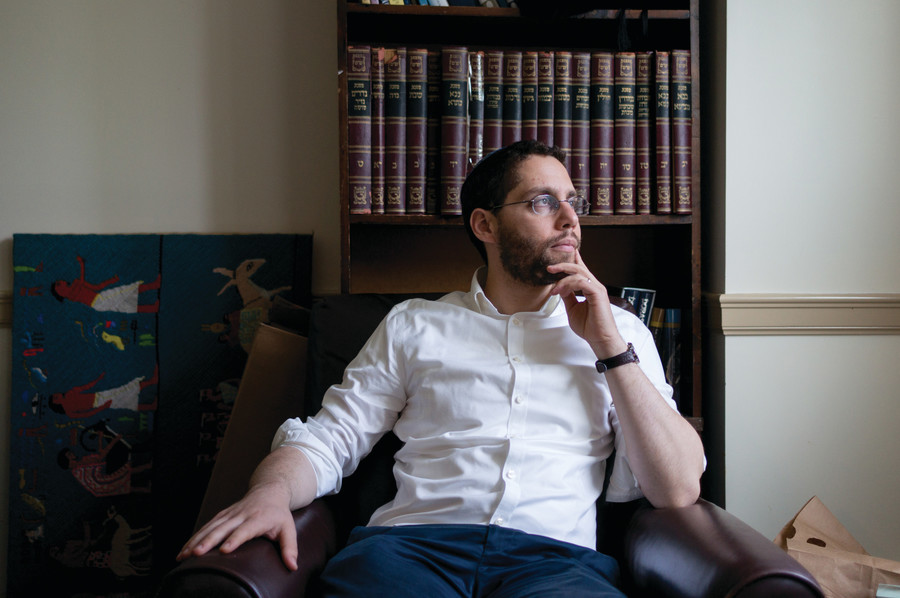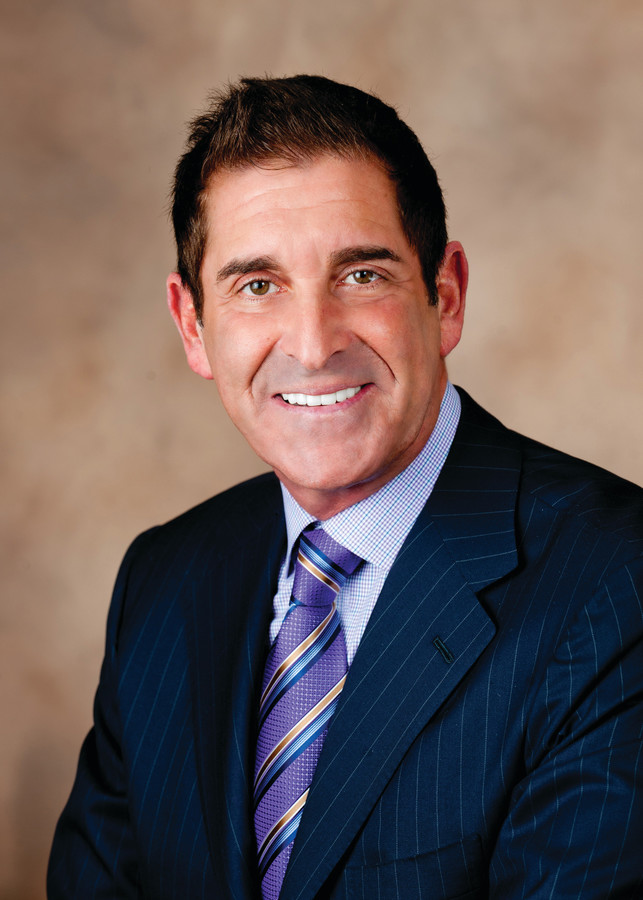Rabbi urges passage of child victims legislation
It’s happened in our own backyard.
Oftentime, Riverdale can seem like a leafy oasis separate from outside chaos and corruption, with its stately red-brick homes and charming stony sidewalks built for raising families and hosting students.
But the community was rocked in 2012 with the revelation that Horace Mann School was the site of decades of sexual abuse. Then, in 2015, others claimed a rabbi at the Riverdale Jewish Center was taking naked boys as young as 12 into the sauna after games of racquetball or squash, though he was never accused of overt sexual acts.
As New York state law now stands, victims of child sex abuse have five years to bring forward a case once they turn 18. This means they have until they are 23 to confront their abusers — the same age many young adults graduate college or move into their first apartment.
The only other states with such a statute of limitations are Mississippi, Alabama and Michigan — all of which rank among the worst in the nation in terms of how their criminal justice laws treats victims, according to the National Association for the Prosecution of Child Abuse.
‘Laws are bad, so, so bad’
“Everybody knows that the current laws are so bad, so, so bad,” said Rabbi Ari Hart, who has led the Hebrew Institute of Riverdale since 2012. “Five years to come forward is an insult to survivors of sexual abuse, and it’s really a joke.”
Last year, Hart began the Coalition to Pass the Child Victims Act as a way to reform New York’s laws. The group started as a Jewish coalition, but has been expanded since into an interfaith alliance. Now some 300 religious leaders and more than 1,000 people from across the denominational spectrum have signed on.
Hart’s efforts, he said, stem from the fact that a main force of opposition for the bill comes from faith communities — often to protect their own financial interests. The state Catholic conference, for example, spent $2 million in lobbying firms to block child-sex law reform from 2007 to 2015, state records show.
“We should put the call of the prophets over our own profits,” Hart said. “Meaning even if it costs us, the job of faith is to stand with the vulnerable.”
No takers
The coalition spent several days lobbying in the halls of the state senate and Assembly in Albany, with much of the labors being led by survivors themselves. Hart described the process as frustrating, especially when dealing with some elected officials.
“You have the power to help people and you’re not doing it,” Hart said.
The Child Victims Act would extend the time a victim could bring a case forward. In the senate version of the bill, which the coalition is supporting, there is a total repeal of the statute of limitations on both civil and criminal suits. In some cases, Hart said, it can take decades for a victim of child sex abuse to feel comfortable sharing their story.
The more time that passes, however, the harder it is for an attorney to prosecute.
“If you are trying to go back and relive things that happened 40 or 50 years ago, it becomes very difficult,” veteran trial attorney Matthew McMahon said.
McMahon, who has practiced law in the Bronx for more than 30 years, said there’s a reason why statutes of limitations exist. Extending them too far can create problems for prosecutors, especially since over time evidence disappears, memories morph or fade, and witnesses die. He suggested an extension to 10 years would be a good place to start.
Grace period
While the debate over how long statute of limitations in such cases should be extended rages on, one of the more controversial components of the bill Hart champions comes in the form of a one-year revival period. That period would allow victims to bring a case forward regardless of whether the statute of limitations has passed. Delaware, Hawaii and California are a few states that have enacted such a window.
“The window is a safe, effective, responsible way to deal with past claims and get perpetrators off the street,” Hart said.
What has some worried, however, is that this clause could flood the courts with cases. McMahon, however, said he’s not worried about that. Just because someone comes forward doesn’t mean they automatically go to trial. In many cases, he added, these cases settle out of court, especially if there is sufficient proof backing the accuser.
“I would think there would be a very large amount of people who would capitalize on that,” McMahon said. “But there won’t be enough cases that would have a significant impact on the court.”
It would, however, put a great deal of pressure on municipalities and insurance companies, two major players challenging the law reform.
A time to act
The fight to reform such laws in New York has been drawn out for more than a decade in the legislature. The stalemate could very well continue this year, especially since the current legislative session ends June 21.
“Every year that goes by is another year where victims don’t get justice,” Hart said. “It’s a horrible, horrible thing.”
The coalition is looking to one politician in particular to take ownership and lead the bill through the Senate: Jeffrey Klein.
Klein told The Press he and his breakaway Independent Democratic Conference have released a piece of legislation addressing the concerns over the one-year revival window.
His version of the bill includes a five-member panel whose job would be to screen each case that came forward during the revival period. The court of appeals chief judge would appoint the panel, which must include a former district attorney or assistant district attorney.
“This should put to rest some of the fears of people that this will be just a nonstop litigation process for everyone who wants to bring lawsuits, whether it’s just or not,” Klein said.
Only with the approval of the commission can someone bring a case to court during that one-year period.
“We’ve being going back and forth with the same piece of legislation for years now,” Klein said. “I believe that I’m trying to fix it.”
Klein introduced the legislation this week, although there are only two weeks left in the session — the likelihood of it passing is not good.
The Child Victims Act is currently stalled in the Senate committee and the Assembly may vote on a different version of the bill in the near future. Hart and the coalition are going back up to Albany next week to continue fighting for reform.
“It’s not about politics,” Hart said. “It’s about do you choose to stand with victims of child sexual abuse or not.”









